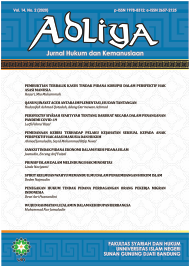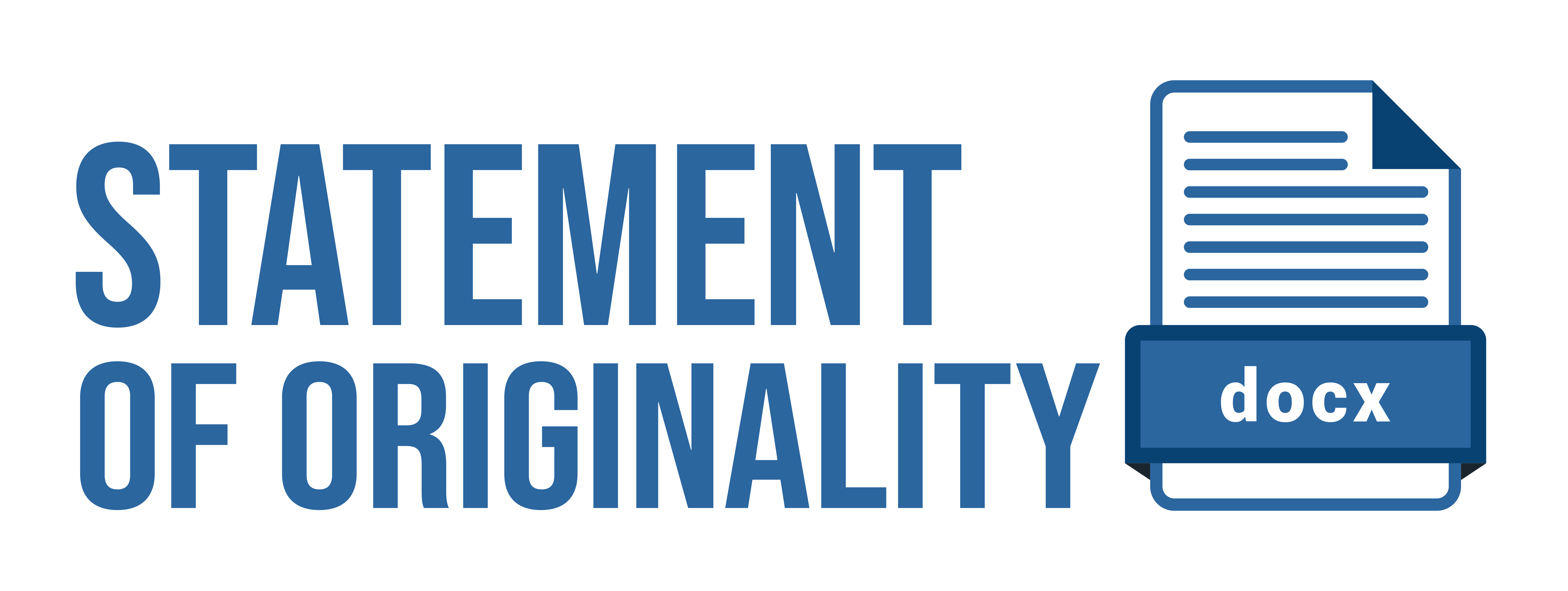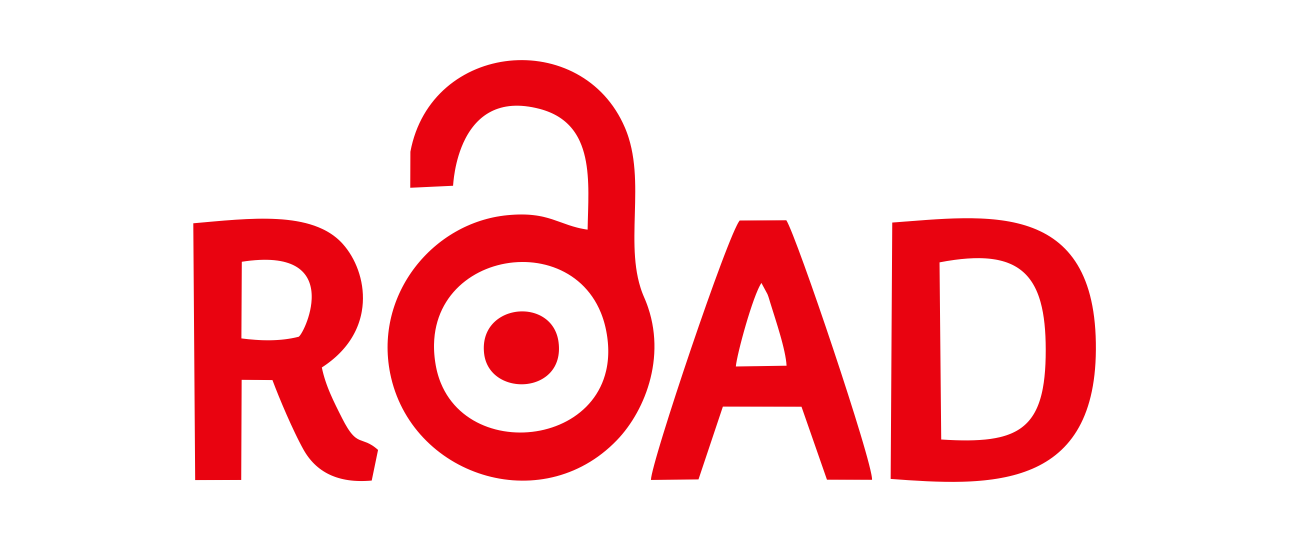SPIRIT KEILMUAN WAHYU MEMANDU ILMU DALAM PENGEMBANGAN HUKUM ISLAM
DOI:
https://doi.org/10.15575/adliya.v14i2.9433Keywords:
Paradigm, Islamic Law and ScienceAbstract
In the development of Islamic law that covers all aspects of people's lives, both in the hereafter problem with all its problems, as well as world problems with all these problems require a new paradigm of scientific mindset. The more advanced development of science and technology also influences the progress of social life, culture, politics, economics and others. So the authors take up this theme using descriptive and comparative methods, and the type of data used in this study is qualitative data. Islamic law requires a new paradigm of mindset and renewal of the views of a problem, especially in everyday life or we can call it contemporary fiqh. The paradigm of the new paradigm becomes more severe, due to contemporary problems, even more complicated when seen from the perspective of fiqh. However, the tradition of the fuqaha used to guide the dynamics of life in his day, so that in this day and age we can imitate the ulama fuqaha by at least contributing to the development of science and understanding, with various kinds of problems in society in accordance with the times, so that the problems of religious life the people are always guided. This paper will raise the opportunity given by Islamic law itself to its people to always criticize it, which allows the emergence of new paradigms along with the emergence of new problems in society.
References
Abu Zahrah, Imam Muhammad. Ushul al-Fiqh. Beirut : Dar al-Fikr. T.th.
Alkatiri, Djafar. Jurnal Ilmiah Al-Syir’ah , Hukum Islam Perspektif Paradigma Baru Keilmuan, 2003.
Amrullah, Ahmad SF. Dimensi Hukum Islam dalam Hukum Nasional. Jakarta: Gema Insani Press, 1996.
Arifin, Tajul. Teknik Penulisan Skripsi. Bandung: Gunung Djati Press, 2011.
Bisri, Cik Hasan. Penuntun Penyusunan Rencana Peelitian dan Penulisan Skripsi Bidang Ilmu Agama. Jakarta: Raja Grafindo Persada, 2003.
Charles J. Adams, dalam Muhammad Daud Ali, Hukum Islam, Pengantar Ilmu Hukum dan Tata Hukum Islam di Indonesia, Cet. VII Jakarta: Radja Grafindo Persada, 1999.
Djamil, Faturahman. Filsafat Hukum Islam. Bag. I. Jakarta: Logos wacana Ilmu, 1997.
H. Ichtijanto S.A, Pengembangan Teori Berlakunya Hukum Islam di Indonesia, Bandung: Remaja Rosdakarya, 1991.
https://duniatanah.wordpress.com
Khallaf, Abdul Wahab. Ilmu Ushul Fiqih. Jakarta: Pustaka, 2003.
Mardani, Hukum Islam, Kumpulan Peraturan tentang Hukum islam di Indonesia, Jakarta: PT Fajar Interpratama Mandiri, 2013.
Masbukin & Alimuddin Hassan, “Akal dan Wahyu, Antara Perdebatan Dan Pembelaan Dalam Sejarahâ€, Jurnal TOLERANSI. Vol. 8, No. 2, (Juli-Desember 2016).
Mubarok, Jaih. Sejarah dan Perkembangan Hukum Islam. Cet I. Bandung: Remaja Rosdakarya, 2000.
Muhammad Solikhudin. “Pengembangan Hukum Islam Kontemporer: Dari QawliÌ„ Ke ManhajiÌ„â€. AHKAM. Volume 7. Nomor 1. (Juli 2019).
Nasution, Harun. Pembaharuan dalam Islam. Jakarta: Bulan Bintang, 1975.
Rosyada, Dede. Hukum Islam dan Pranata Sosial. LSIK. Jakarta: Rajawali Pers, 1993.
Schacht, Joseph. An Introduction to Islamic Law. Oxford: Oxford University Press, 1964.
Syahrul Sidiq, “Maqasid Syari’ah dan Tantangan Modernitas: Sebuah Telaah Pemikiran Jasser Audaâ€. IN RIGHT Jurnal Agama dan Hak Azazi Manusia, Vol. 7, No 1, (November, 2017).
Syarifuddin, Amir. Ushul Fiqh. Jakarta: Kencana, 2009.
Wildani Hefni. “Fragmen Kajian Hukum Islam di Perguruan Tinggi Keagamaan Islam Indonesiaâ€. Jurnal Hukum Islam. Volume 16. Nomor 1. (Juni 2018).
Downloads
Published
How to Cite
Issue
Section
Citation Check
License
Authors who publish in ADLIYA: Jurnal Hukum dan Kemanusiaan agree to the following terms:
- Authors retain copyright and grant the journal right of first publication with the work simultaneously licensed under a Attribution-ShareAlike 4.0 International (CC BY-SA 4.0) License that allows others to share the work with an acknowledgment of the work's authorship and initial publication in this journal.
- Authors are able to enter into separate, additional contractual arrangements for the non-exclusive distribution of the journal's published version of the work (e.g., post it to an institutional repository or publish it in a book), with an acknowledgment of its initial publication in this journal.
- Authors are permitted and encouraged to post their work online (e.g., in institutional repositories or on their website) prior to and during the submission process, as it can lead to productive exchanges, as well as earlier and greater citation of published work (See The Effect of Open Access).
















